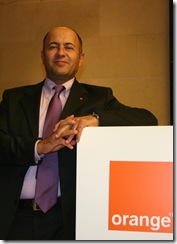Mobilink, Pakistan’s leading mobile operator, is optimistic its new WiMAX broadband and telephony service ‘Mobilink Infinity’ will gain 50,000 subscribers by year-end, despite having only commercially launched on October 22.
 Orascom’s Mobilink serves 32 million GSM subscribers and is the second WiMAX operator in Pakistan
Orascom’s Mobilink serves 32 million GSM subscribers and is the second WiMAX operator in Pakistan
Mobilink Infinity is based on Alcatel-Lucent’s mobile WiMAX Rev-e technology and has already attracted several thousand subscribers within its first three weeks of operation in the capital city and business centre of Karachi.
Alcatel-Lucent has supplied the WiMAX Rev-e solution using both fixed and nomadic terminal devices from various customer premises equipment (CPE) partners, as part of its Open CPE program, designed to ensure service providers have access to a wide range of interoperable end-user devices.
The WiMAX network leverages existing sites and equipment in Mobilink’s GSM network, which supports 32 million subscribers as of Q208, a market share of 36.4 per cent.
The subsidiary of Egypt’s Orascom Telecom Group is the second operator to licence WiMAX in the country of 169 million people, the first being Wateen Telecom, which last month announced it was doubling its network capacity to cover 22 cities to serve a potential market of 30 million people.
Wateen Telecom announced a contract in January for it to be supplied with 198,000 Motorola end-user WiMAX CPE devices for indoor and outdoor use.






